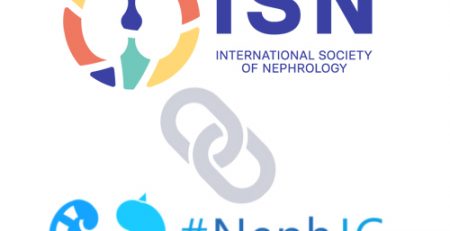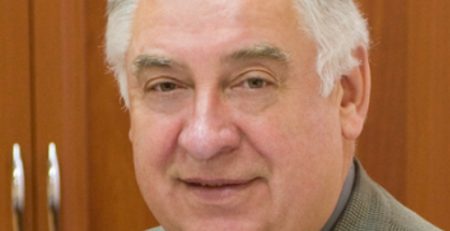ISN Council elections: Meet candidates from Oceania & South East Asia and South & Central Asia
In the run up to the ISN Council elections, we will introduce the different candidates who you can vote for. You can cast your vote between February 1st and March 3rd, 2017. Over the next month, you will receive your unique and secure link to access the voting system. These are the statements from candidates in Oceania & South East Asia and South & Central Asia.
The ISN Council is the governing body and the legal trustee of the Society. Its composition reflects the various disciplines and geographic diversities that make up ISN. All members of ISN have the chance to cast their vote and change the way the ISN Council will look in the next term. In the meantime, before making your choice, read the guide to the elections, HERE.
Make sure your membership is up to date so you can vote. Renew your membership online HERE. If your email address has changed, please notify: membership@theisn.org.
This is the list of candidates for the regions of Oceania & South East Asia and South & Central Asia with their statements.
Oceania and South East Asia
 Lucky Aziza Bawazier, Universitas Indonesia Cipto Mangunkusumo National Hospital, Government Teaching Hospital, Indonesia
Lucky Aziza Bawazier, Universitas Indonesia Cipto Mangunkusumo National Hospital, Government Teaching Hospital, Indonesia
‘If I am elected as one of the ISN Councilors, I will continue the development of nephrology and distribute important information related to ISN event progress and latest news from ISN to every countries in South East Asia and Oceania region. Introduce my region’s medical faculties and both government and private-owned teaching hospitals to other ISN members.
Encourage my colleagues in South East Asia and Oceania (especially in Indonesia) to conduct more research, to present research at ISN events, and to actively participate as a committee and/or moderator and/or speaker at ISN events as there nobody from my country has participated in any of the positions mentioned above. Create more Sister Renal Center Programs between hospitals in my region and report our new Renal Registry.’
 Adrian Liew, Tan Tock Seng Hospital, Singapore
Adrian Liew, Tan Tock Seng Hospital, Singapore
‘South East Asia has a large ESRD population with limited access to nephrology care and dialysis. The burden of renal disease is often underestimated due to lack of structured and purposeful collection of quality data. In addition, the availability of educational materials may be compromised by poor accessibility and reduced opportunities. As an ISN Councilor for this region, it is my aim to accomplish the following:
Improve access to dialysis through the local health authorities by positioning dialysis care at the optimal level for each respective country, industry partners through negotiation for enhanced support and reaching out to local health professionals so as to heighten awareness
Rally local societies to develop a common system for obtaining accurate representation of the CKD and ESRD load in the region.
Improve training and mentorship opportunities in underprivileged regions through sister unit
pairing and educational support.’
 Kriang Tungsanga, King Chulalongkorn University, Bangkok, Thailand
Kriang Tungsanga, King Chulalongkorn University, Bangkok, Thailand
’ISN is quite a unique academic society accessible to plenty of renal physicians and allied personnel worldwide.
To become an ISN Councilor, there will be great community to collaborate with national societies across the globe to facilitate CKD education and prevention program to create easy but reliable tools for CKD screening, early management and patient empowerment.
ISN could have pivotal role in persuading health authorities, especially among developing countries, to bring CKD into their national health agenda, as a priority among all non-communicable diseases. Research and quality improvement in this area, as well as in the field of dialysis, transplantation and regenerative medicine, are very important for future trend of renal medicine.’
South and Central Asia
 Vijay Kher, Division of Nephrology & Renal Transplant Medicine, Fortis Escorts, New Delhi, India
Vijay Kher, Division of Nephrology & Renal Transplant Medicine, Fortis Escorts, New Delhi, India
‘It would be a great privilege to be in the ISN Council, if elected. I would like to initiate a greater partnership between the two ISN’s in their mission to advance education, science and patient care in nephrology in India as well as in the South Asian region. The Indian Society of Nephrology Annual Scientific conference is attended by nephrologists from the region in increasing numbers every year and I, as incoming President of the Indian Society of Nephrology, will be in a better position to strengthen the engagement of various nephrology societies in the region with both the ISNs. I would also like to engage the membership in the region to foster various ISN programs so as to improve the education of local physicians, engage them in preventive programs, and help create advocacy groups to engage health departments for their regional commitment to these programs. I would also help and inspire younger nephrologists of the region to get involved in leadership roles as to create future committed leaders for both the ISNs.’
 K S Nayak, Renal Sciences, Dialysis Centres & Renal Transplant Program Deccan Hospital Hyderabad, India
K S Nayak, Renal Sciences, Dialysis Centres & Renal Transplant Program Deccan Hospital Hyderabad, India
‘As an ISN Councilor from the South and Central Asia, I intend to dedicate myself to bringing affordable and the highest quality renal care to this region, which has one of the most economically vulnerable populations in the world.
My practical expertise in areas of acute kidney injury (AKI) (Saving lives under 150 $), kidney transplantation (especially in affordable induction therapy),telemedicine in dialysis (bringing patient ’closer’ to the doctor) and my pioneering role in peritoneal dialysis to promote ‘PD First’ as the preferred approach to ESRD management, will be my passionate goal.
I plan to develop a ‘hub & spoke’ model whereby, nephrologists, physicians and nurses from the region get trained under our team, and return to their home countries to set up centers, which in turn could train more medical personnel from their own country. As an accomplished teacher, I would closely follow them up to help implement what they learned.’

Muhibur Rahman, Sir Salimullah Medical College and Mitford Hospital, Dhaka in Bangladesh
‘As an ISN Councilor I shall work to reduce the incidence and impact of kidney diseases, making ISN the leading organization for all issues related to nephrology.
Establish a bridge between ISN and Government agencies in this region with a view to establishing policies so that ISN is involved in the improvement of nephrology services in this region
Decrease the burden of ESKD by formulating effective screening program and early detection of CKD
Implement the ISN 0by25 initiative by involving the Government agencies to tackle the factors related to community acquired acute kidney injury (AKI), e.g. safe water supply, sanitation, prevention of food adulteration, prohibition of nephrotoxic indigenous medicines, safe child delivery etc.
Standardise the laboratory facilities, especially biochemical and histopathological labs in developing countries. Regional reference lab can be set up by ISN initiatives. Increase the participation of experts of developing countries in formulation of clinical practice guidelines.’
 Devinder Singh Rana, Sir Ganga Ram Hospital, New Delhi, India
Devinder Singh Rana, Sir Ganga Ram Hospital, New Delhi, India
‘I would like to contribute in developing comprehensive services in the field of nephrology, dialysis and kidney transplantation in all developing countries, with special focus on South Asia, in particular towards capacity building training of nephrologists, internists and allied health workers. It is important to involve every physician and internist in providing optimal medical care to the patients suffering from CKD 1 to 4 and also to reduce the burden to CKD 5.
I would like to work with other medical societies to integrate the care of kidney disease into general practice using simple tools, providing them with education and updated guidelines and to follow best global medical practices but keeping local healthcare systems in mind.
With my contacts in the region, I shall promote all the ISN programs for achieving aims and objectives of the society in promoting education, training, prevention and treatment of kidney diseases.’
 Manisha Sahay, Osmania Medical College and Osmania Government General Hospital, India
Manisha Sahay, Osmania Medical College and Osmania Government General Hospital, India
‘As ISN Councilor, I would work to get all nephrologists under the ISN umbrella and ensure that ISN policies impact underprivileged people for whom they are designed.
As a woman and mother I am appalled by large number of preventable kidney failures in South Asians, especially in pregnant women and children. Primary care physicians for these patients are often not nephrologists.
I would like to create an ISN interface to empower primary care physicians to arrest CKD at inception thus taking ISN services to nephrologists and beyond.
Being in a government teaching hospital, I am in a unique position to carry ISN policies to the poor. As a teacher to many students, I have the perfect opportunity to introduce young minds to the wonderful world of nephrology. As one of the few women nephrologists in South Asia I would like to champion the cause of women. I promise to uphold the values of ISN in its mission to eliminate renal problems worldwide.’
Read about the candidates in other regions.












